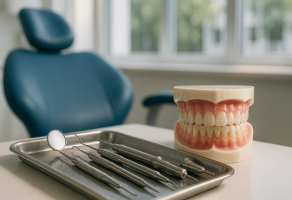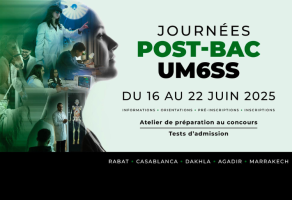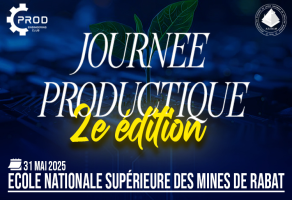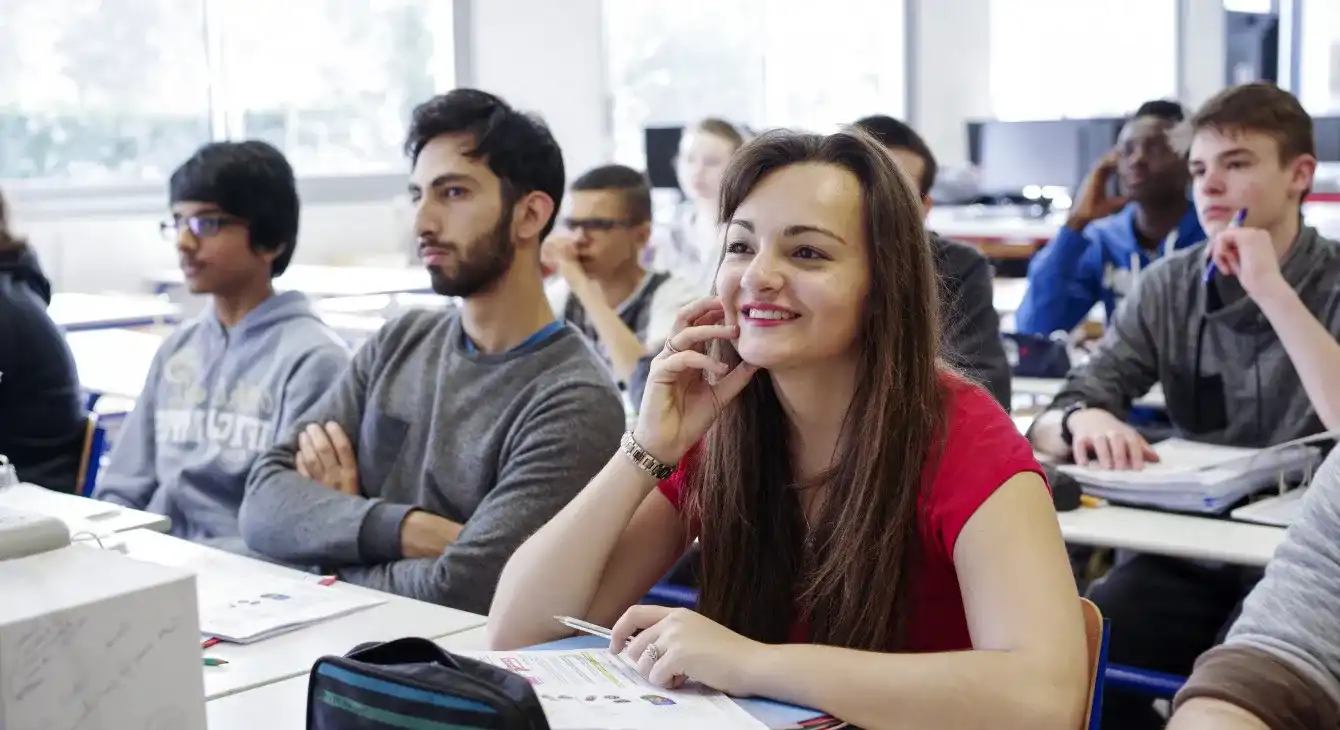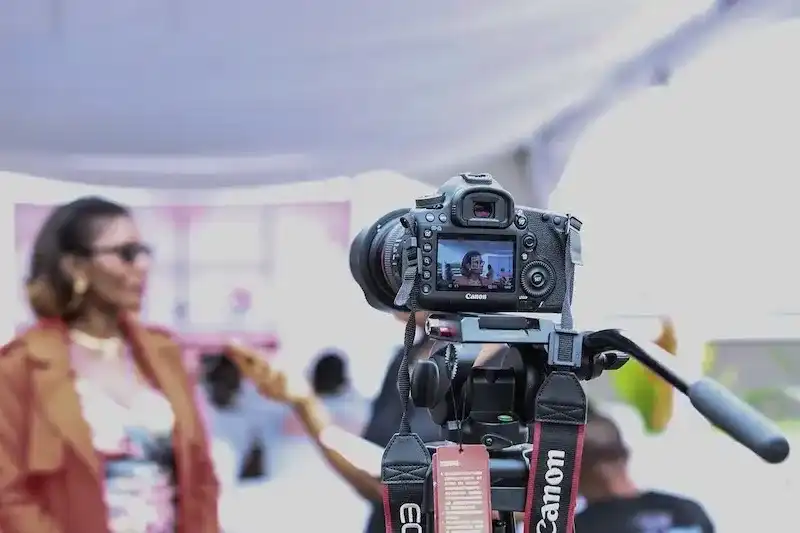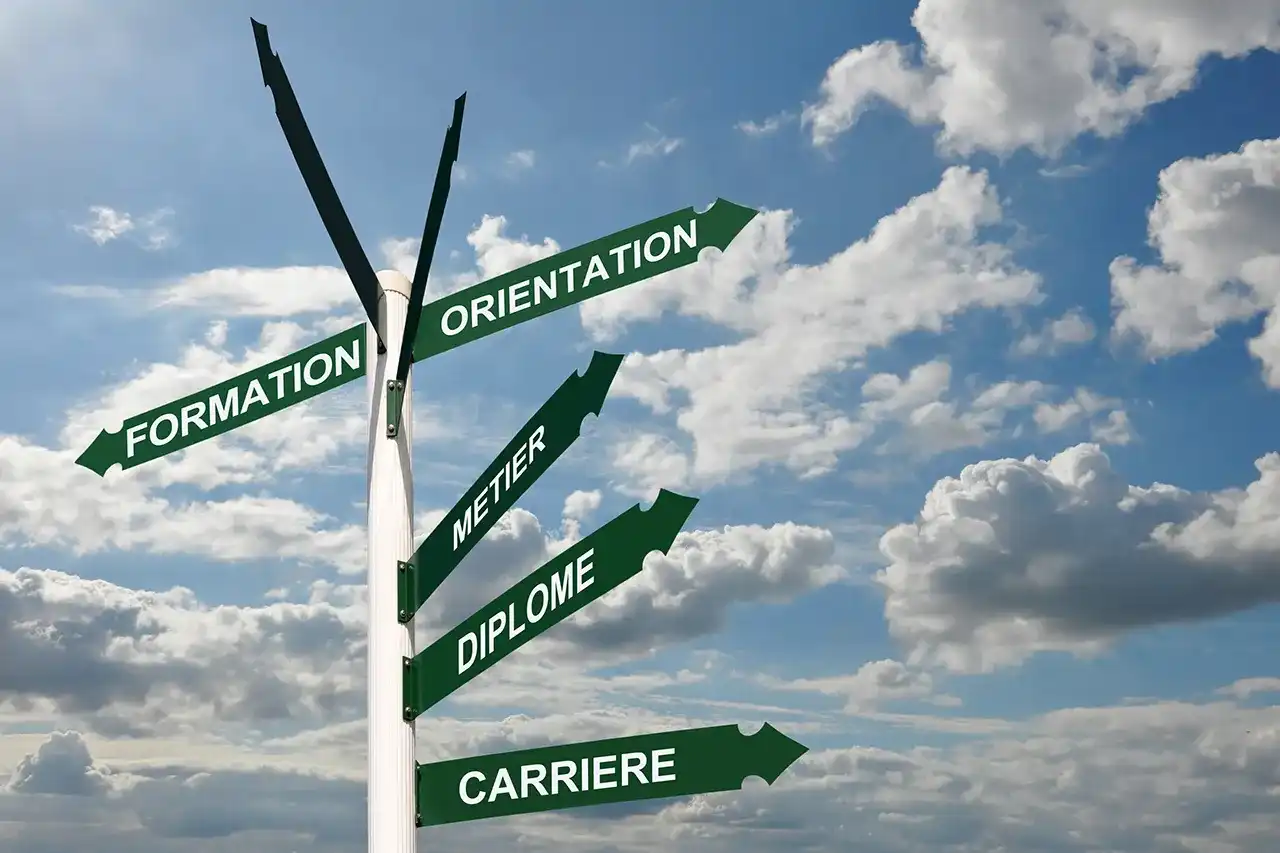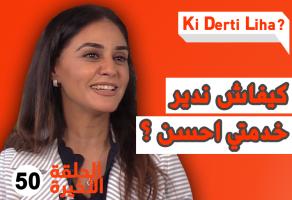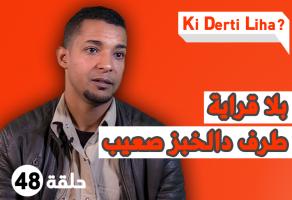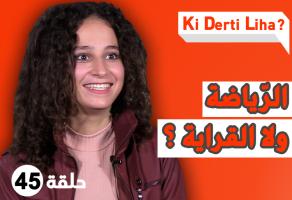Relative Clauses - English exercice
Relative Clauses:
Exercise 1
Choose the correct answer .
- The car, __________ is grey, belongs to Youssef. (which/who/whose)
- Ito, __________ is a Japanese engineer, works for World Computers. (which/who/whose)
- Pierre , __________ is a talented cook, lives in Lyon. (which/who/whose)
- Do you see those cats __________ are lying on the sofa? (which/who/whose)
- Does she know the girl __________ father is a nurse? (which/who/whose)
- Did I tell you about the man __________ eats four kilogrammes of apples in twenty minutes? (which/who/whose)
- The girls __________ we met yesterday at Janes’ birthday party are very boastful. (which/who/whose)
Exercise 2
Choose the correct answer .
- A mall is a building __________ you can do your shopping. (who/where/which)
- A night is the time of a day __________ it is dark outside. (when/who/where)
- A cookery book is a book __________ you can look up recipes. (which/when/where)
- A pickpocket is a person __________ steals purses from pockets and bags. (who/where/which)
- Carnivores are animals __________ live on meat. (who/where/which)
- An acronym is a word __________ is the opposite of another word. (which/where/when)
- Winter is the season of the year __________ it rains heavily. (where/when/who)
Exercise 3
Join the pairs of sentences with who or which .
- The woman was sick. She looked very pale.
- Some people were waiting in the emergency room. It was very crowded.
- The doctor called a nurse. She came quickly.
- The doctor gave the patient an injection. It made her fall asleep.
- The Olympic Games were exciting. Many people watched them live on TV.
- Youssef and Hind spent their holiday in Dover. Dover is in the south of Great Britain.
- Arthur Conan Doyle was born in Scotland. He wrote the Sherlock Holmes stories.
Exercise 4
Complete the sentences using who and which .
- A freezer is a thing (freeze food and water).
- A DJ is someone (play music in a disco).
- A bee is an insect (make honey).
- An apple is a fruit (be yellow or red and sweet).
- A Dutch is a person (come from the Netherlands).
- A caoch is a vehicle (carry people from a town to another town).
- A salesperson is someone (work in a shop).
Exercise 5
Complete the sentences using whose and which
- I saw the man __________ car you damaged.
- He went back to live in the house __________ stood on the corner in Regent Avenue.
- He couldn't remember __________ movie by Steven Spielberg he had seen.
- That's the man __________ wife works with my wife in National Bank.
- The woman __________ dog bit you is a police officer.
Tenses:
Exercise 1
Put the words in brackets in the correct present tense .
1- The earth (circle) the sun, but it (circles, not) the moon.
2- Every Thursday morning, Mrs Smith (drive) her kids to the tennis club.
3- Sue (work) as a secretary at Bromley International Bank, but this summer she (study) German at a language school in Berlin. That is why she is in Germany.
4- Keep quiet! The baby (sleep).
5- Sheila (have) a severe headache for several hours.
6- He (hate) living in Britain because it (rain) a lot.
7- I'm sorry I can't hear what you (say) because everybody (talk) so loudly.
Exercise 2
Put the verbs in brackets in the past tense .
- They (watch) an American movie when Sue called last night.
- If I (drink) so much coffee, I would not be able to sleep.
- I'm really hungry because I (not, have) breakfast this morning.
- I (fall) off my bike yesterday, but I (not, hurt) myself.
- Allan (get) wet while he (walk) in the rain.
- They (slip) and (fall) while they (climb) the mountain.
- I (can, not) see you yesterday. I (be) out of town.
Exercise 3
Put the verbs in brackets in the correct future tense .
1- They (climb) the Himalaya Mountains this time next year.
2- Nancy (take) her final exams in a couple of days’ time.
3- By 2025, Mr. Smith and his wife (retire).
4-The maid (clean) the rooms tonight.
5- In five years’ time, the local authorities (build) a new hospital in this area.
6- “I’m not certain you (pass) your driving test,” Betty told James.
7- I (have) a cup of tea and (watch) football this time next Sunday.
Exercise 4
Put the verbs in brackets in the correct tense .
- I don't understand you. What (you, talk) about?
- By the end of 2007, Susan (teach) English for ten years in South Korea.
- Mr. Smith (travel) widely since he was 16.
- How long you (work) as a computer programmer?
- If you (not, find) my wallet, I would have been very sad.
- The leader of the party (talk) for hours about nothing.
- (You, go) to the pictures next Sunday in the evening?
Exercise 5
Put the verbs in brackets in the correct tense .
- The athletes (train) for the Olympic Games at the moment.
- How long you (work) in this school?
- Call on me after midday. I (arrive) home by then.
- She (promise) herself she would never make the same mistake again.
- “(You, can) park your car over there,” the policeman told the driver.
- My uncle (take) me to pictures tomorrow.
- (You, sing) at Kate’s birthday party two days ago?
The pasive
|
Present tenses
am/is/are + past participle am/is/are + being + past participle have/has been + past participle Past tenses was/were + past participle was/were + being + past participle had been + past participle |
Future tenses
will be + past participle will have + been + past participle is/are going to be + past participle Present/Future modals modal + be + past participle Past modals modal + have been + past participle |
|---|
Home Work:
a. Turn these sentences into the passive.
- My uncle manages a huge firm.
- My children like toys very much.
- My little sister sometimes asks stupid questions.
- Those people are talking about politics.
- They are writing the test exercises at the present time.
- Kamal is carrying a heavy box.
- I have sent a parcel to the USA.
- Jalil has received two letters.
- Willy has bought a limousine.
b. Turn these sentences into the passive.
- Ziryab composed some beautiful love songs.
- Hind lost her family in a road accident.
- The customer ordered a green salad and a cheese sandwich.
- I was cleaning my room when the light went out.
- My wife was making a pizza when I arrived home.
- The teacher was explaining the irregular verbs to the students.
- She had taken all my books.
- I replied the teacher’s question politely.
- Pablo Picasso had painted Guernica in 1937.
c. Turn these sentences into the passive.
- Jalil and Jamal will finish the job tomorrow.
- The dog will eat the bone.
- They will move before June.
- He will have begun the job by next week.
- Man will have set colonies in the moon by the year 2050.
- I will have completed his high studies by the end of next year.
- They are going to have some Chinese food for dinner.
- Jalil is going to offer me a watch for my coming birthday.
- She is going to invite her friends for lunch next weekend.
d. Turn these sentences into the passive.
- Jalil can speak two foreign languages.
- The firm may give a high rise to the workers.
- The lazy students might get weak marks in the test.
- Jamal should learn the irregular verbs.
- Drivers ought to respect the traffic law.
- Obese people had better practise sport everyday.
- Moroccan people must apply for visas to travel to the UK.
- The prisoners have to clean their cells every weekend.
e. Turn these sentences into the passive.
- My little brother should have broken the vase.
- He should have got a bad mark in the French test.
- Students ought to have learned the irregular verbs by heart.
- The bank may have received my fax.
- The boss may have offered Jamal a new duty in the company.
- She might have done the homework correctly.
- They might have had dinner in a Chinese diner.
- The ministers of foreign affairs might have talked about the world economic crisis.
Relative Clauses:
Exercise 1
Choose the correct answer .
- The car, __________ is grey, belongs to Youssef. (which/who/whose)
- Ito, __________ is a Japanese engineer, works for World Computers. (which/who/whose)
- Pierre , __________ is a talented cook, lives in Lyon. (which/who/whose)
- Do you see those cats __________ are lying on the sofa? (which/who/whose)
- Does she know the girl __________ father is a nurse? (which/who/whose)
- Did I tell you about the man __________ eats four kilogrammes of apples in twenty minutes? (which/who/whose)
- The girls __________ we met yesterday at Janes’ birthday party are very boastful. (which/who/whose)
Exercise 2
Choose the correct answer .
- A mall is a building __________ you can do your shopping. (who/where/which)
- A night is the time of a day __________ it is dark outside. (when/who/where)
- A cookery book is a book __________ you can look up recipes. (which/when/where)
- A pickpocket is a person __________ steals purses from pockets and bags. (who/where/which)
- Carnivores are animals __________ live on meat. (who/where/which)
- An acronym is a word __________ is the opposite of another word. (which/where/when)
- Winter is the season of the year __________ it rains heavily. (where/when/who)
Exercise 3
Join the pairs of sentences with who or which .
- The woman was sick. She looked very pale.
- Some people were waiting in the emergency room. It was very crowded.
- The doctor called a nurse. She came quickly.
- The doctor gave the patient an injection. It made her fall asleep.
- The Olympic Games were exciting. Many people watched them live on TV.
- Youssef and Hind spent their holiday in Dover. Dover is in the south of Great Britain.
- Arthur Conan Doyle was born in Scotland. He wrote the Sherlock Holmes stories.
Exercise 4
Complete the sentences using who and which .
- A freezer is a thing (freeze food and water).
- A DJ is someone (play music in a disco).
- A bee is an insect (make honey).
- An apple is a fruit (be yellow or red and sweet).
- A Dutch is a person (come from the Netherlands).
- A caoch is a vehicle (carry people from a town to another town).
- A salesperson is someone (work in a shop).
Exercise 5
Complete the sentences using whose and which
- I saw the man __________ car you damaged.
- He went back to live in the house __________ stood on the corner in Regent Avenue.
- He couldn't remember __________ movie by Steven Spielberg he had seen.
- That's the man __________ wife works with my wife in National Bank.
- The woman __________ dog bit you is a police officer.
Tenses:
Exercise 1
Put the words in brackets in the correct present tense .
1- The earth (circle) the sun, but it (circles, not) the moon.
2- Every Thursday morning, Mrs Smith (drive) her kids to the tennis club.
3- Sue (work) as a secretary at Bromley International Bank, but this summer she (study) German at a language school in Berlin. That is why she is in Germany.
4- Keep quiet! The baby (sleep).
5- Sheila (have) a severe headache for several hours.
6- He (hate) living in Britain because it (rain) a lot.
7- I'm sorry I can't hear what you (say) because everybody (talk) so loudly.
Exercise 2
Put the verbs in brackets in the past tense .
- They (watch) an American movie when Sue called last night.
- If I (drink) so much coffee, I would not be able to sleep.
- I'm really hungry because I (not, have) breakfast this morning.
- I (fall) off my bike yesterday, but I (not, hurt) myself.
- Allan (get) wet while he (walk) in the rain.
- They (slip) and (fall) while they (climb) the mountain.
- I (can, not) see you yesterday. I (be) out of town.
Exercise 3
Put the verbs in brackets in the correct future tense .
1- They (climb) the Himalaya Mountains this time next year.
2- Nancy (take) her final exams in a couple of days’ time.
3- By 2025, Mr. Smith and his wife (retire).
4-The maid (clean) the rooms tonight.
5- In five years’ time, the local authorities (build) a new hospital in this area.
6- “I’m not certain you (pass) your driving test,” Betty told James.
7- I (have) a cup of tea and (watch) football this time next Sunday.
Exercise 4
Put the verbs in brackets in the correct tense .
- I don't understand you. What (you, talk) about?
- By the end of 2007, Susan (teach) English for ten years in South Korea.
- Mr. Smith (travel) widely since he was 16.
- How long you (work) as a computer programmer?
- If you (not, find) my wallet, I would have been very sad.
- The leader of the party (talk) for hours about nothing.
- (You, go) to the pictures next Sunday in the evening?
Exercise 5
Put the verbs in brackets in the correct tense .
- The athletes (train) for the Olympic Games at the moment.
- How long you (work) in this school?
- Call on me after midday. I (arrive) home by then.
- She (promise) herself she would never make the same mistake again.
- “(You, can) park your car over there,” the policeman told the driver.
- My uncle (take) me to pictures tomorrow.
- (You, sing) at Kate’s birthday party two days ago?
The pasive
|
Present tenses
am/is/are + past participle am/is/are + being + past participle have/has been + past participle Past tenses was/were + past participle was/were + being + past participle had been + past participle |
Future tenses
will be + past participle will have + been + past participle is/are going to be + past participle Present/Future modals modal + be + past participle Past modals modal + have been + past participle |
|---|
Home Work:
a. Turn these sentences into the passive.
- My uncle manages a huge firm.
- My children like toys very much.
- My little sister sometimes asks stupid questions.
- Those people are talking about politics.
- They are writing the test exercises at the present time.
- Kamal is carrying a heavy box.
- I have sent a parcel to the USA.
- Jalil has received two letters.
- Willy has bought a limousine.
b. Turn these sentences into the passive.
- Ziryab composed some beautiful love songs.
- Hind lost her family in a road accident.
- The customer ordered a green salad and a cheese sandwich.
- I was cleaning my room when the light went out.
- My wife was making a pizza when I arrived home.
- The teacher was explaining the irregular verbs to the students.
- She had taken all my books.
- I replied the teacher’s question politely.
- Pablo Picasso had painted Guernica in 1937.
c. Turn these sentences into the passive.
- Jalil and Jamal will finish the job tomorrow.
- The dog will eat the bone.
- They will move before June.
- He will have begun the job by next week.
- Man will have set colonies in the moon by the year 2050.
- I will have completed his high studies by the end of next year.
- They are going to have some Chinese food for dinner.
- Jalil is going to offer me a watch for my coming birthday.
- She is going to invite her friends for lunch next weekend.
d. Turn these sentences into the passive.
- Jalil can speak two foreign languages.
- The firm may give a high rise to the workers.
- The lazy students might get weak marks in the test.
- Jamal should learn the irregular verbs.
- Drivers ought to respect the traffic law.
- Obese people had better practise sport everyday.
- Moroccan people must apply for visas to travel to the UK.
- The prisoners have to clean their cells every weekend.
e. Turn these sentences into the passive.
- My little brother should have broken the vase.
- He should have got a bad mark in the French test.
- Students ought to have learned the irregular verbs by heart.
- The bank may have received my fax.
- The boss may have offered Jamal a new duty in the company.
- She might have done the homework correctly.
- They might have had dinner in a Chinese diner.
- The ministers of foreign affairs might have talked about the world economic crisis.
احصل على الدروس الآن
أدخل رقم هاتفك للحصول على محتوى تعليمي حصري









